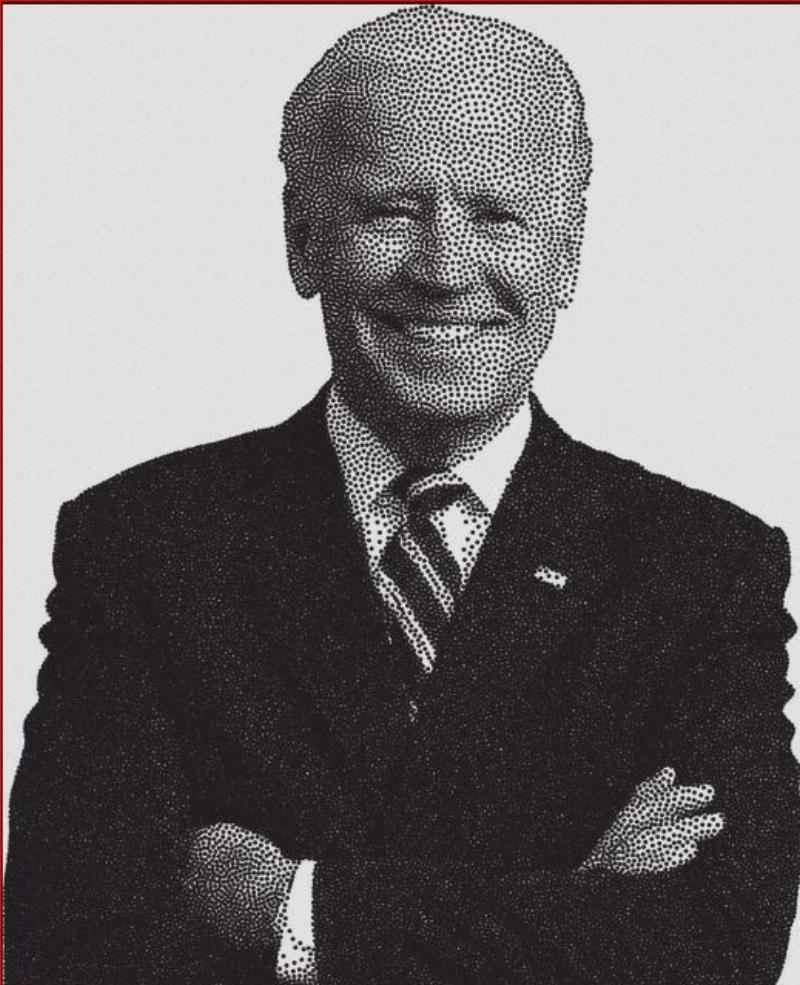We support our Publishers and Content Creators. You can view this story on their website by CLICKING HERE.

There is a tremendous ambiguity around what the United States is doing in and about the current war in Ukraine.
Even the least involved and roughly informed know this is true.
Where is the money going? Why have no legitimate efforts for peace been put forward from our side? Why is there no formal nor effective Congressional oversight? What led to U.S. involvement? Where is the clarity of purpose or even presence of U.S. diplomatic involvement? Which press coverage is true and did corruption in high office persuade the U.S. president and company to pursue this course?
The scope of these unanswered questions is far beyond my knowledge, so I turn to philosophy to try to make the way clearer.
I’m not planning to address the murky “causes” of this war vis a vis the European, Russian, and international theatre; I want to query the intentions of the United States actors, notably President Biden — in taking up a bellicose and awesomely costly posture regarding the defense of Ukraine against Russia.
I turn to philosophy to uncover in the Ukraine War a model and ready example of the near-total absence of rational dialogue and decision-making in our political sphere, to our frightening moral loss.
I turn to philosophy despite its sad absence in our defining culture — philosophy, which has been co-opted for generations by a jealous younger sibling, Science, and by a majority of disloyal and poorly educated practitioners in academia.
These elements work to foster active totalitarian resolutions, coming from the top, to our problems, both domestic and international.
Elizabeth Anscombe made the case for the inner intention of the individual human person in being legitimate root and ground of any truly moral (or immoral) action. The release of Intention was, and is, a groundbreaking and much-heralded analytical philosophical work that turned “modern “centuries of philosophical trending away from reason (and faith), and back towards it.
Anscombe lays out her argument in Intention as re-identifying the locus of moral action from causal results to intentional decisions and subsequent actions. It is the human will and soul (uniquely inaccessible by any other, barring God) which concerns her. Anscombe ties the importance of intention to a common human curiosity to know why people—agents— do the things they do (Intention p. 83); not to knowing why people think the things they think (to know the latter, one must first have a clear picture of what it is that they are thinking, which problematic inquiry is not under discussion in Intention). So, here again, cause is implicitly in play, but not an analytic priority in either philosophical or popular application in discerning the nature of intention. See Berger, Victoria White, “Comparing Perspectives on Cause and Reason in Intentional Action: Elizabeth Anscombe’s Intention and Donald Davidson’s “Actions, Reasons and Causes” (2014). Theses. 204.
There is significant focus on the Ukraine War in its connection to the information universe; some of the arguments made are substansive, however, most are boilerplate.
What we need to know — the “why” of the U.S. contribution and strategy — is not apparent.
A mix of causal “explanations” abound, e.g., Zelensky as Hero, Russian macro-aggression, Putin’s ignominy, European outrage and fear, Energy, Asian Geopolitics, etc.
But according to Anscombe, “intention” often lacks transparency.
While “causes” are front center, and various, in most available views of the Ukraine mess, we are left on our own, as it were, to speculate on President Biden’s intentions; that is to say, Biden’s internal intentions, his decisions and then, immediately, his actions, as night follows day, regarding the activation of the U.S. “response.”
So, regarding intention, we come to quite different territory in any proposed narrative explanation, as we are up against many developments: Burisma, Hunter, Biden’s “handlers,” Congressional investigations of the Bidens, and election interference, to name a few.
Instead of parsing these “causes,” we must try to squarely face the intention of Joe Biden, as far as it is accessible to us by his actions.
If a war of intervention is predicated upon the semi-concealed ambitions of the political elite and/or the entitled, it is morally destined in history as an unjust intervention— effectively so, by origin.
We had problems with this in Vietnam. It was, then, significantly the intellectually elite “think-tank” liberals/scholars and the federal intelligence and diplomatic apparatus that was driving much of presidential policy regarding the Vietnam invention, which became war.
It was Lyndon Johnson’s vanity and desire to appease the Kennedy holdovers in his administration that led to his political downfall — over, primarily, Vietnam.
We now have a changed world, but there are similarities.
What are they? They are, again, locked in the mind and soul, and the intention, of our current president. He, or his surrogate at his behest, made the decision to join this current war. His decision precipitated a host of bespoke unilateral actions — military and financial and purely political — that should not confuse us in terms of his intention to act, for motive is not intention:
“A man’s intention {in philosophical usage generally} is what he aims at or chooses; his motive is what determines the aim or choice; and I suppose {my emphasis} that ‘determines’ must here be another word for ’causes’.” (Intention 18) Anscombe’s reluctance (“/ suppose”) is supported by her acknowledgement of the general difficulties of cause for intention, as well as “confusions involved in radically distinguishing between motives and intentions.” (Intention 19) A motive may be an interpretation of an intentional action but not a reason for it. Whether they be ’causes’, ‘motives’, or ‘determinations’, they are to be distinguished from ‘aims’ or ‘choices’, for ‘a man’s intention is what he aims at or chooses’. (Ibid) These ‘aims’ and ‘choices’ are ‘reasons for’ not ’causes of.” (Ibid 29)
So, here we come to “reasons for” as intentions, leaving the miasma of “causes” of the Ukraine/U.S. relational mess gratefully behind, at present.
Let us say: ‘Joe Biden’s intention for the Ukraine War are actions from his will and reason; those actions being what he aims at or chooses.”
These ‘aims’ and ‘choices’ are ‘reasons for’ not ‘causes of.’ What were Joe Biden’s “reasons for” getting us deeper and deeper into this? Here we find ourselves back to the huge moral ambiguity of an honest participation and commitment in this conflict, an ambiguity ever-confused by causes (Joe Biden’s alleged past and present corruption) but more seemingly, clearly sourced in Joe Biden’s intention.
I make a philosophical hypothesis here: that Joe Biden did and does our War in Ukraine, all of it, because he reasons an imperative to act: to protect himself.
Biden’s selfish, willful intention, and the ever-belligerent actions in immediate association with that intention, is to cover the Burisma et al. self-dealing arrangements. On such trivial pursuits, and on such a “why?” civilizations can fall.
Victoria White Berger earned her dual B.A. in English and History from Duke University and her M.A. in Philosophy from the University of Missouri at St. Louis. Her Master of Philosophy thesis, “Cause and Reason in Intentional Action” is widely read internationally. Her writing can be found at American Thinker, The American Spectator, Louisiana’s Dead Pelican, and on her Substack account: https://victoriawhiteberger.substack.com/.
Image: Pixabay / Pixabay License

 Conservative
Conservative  Search
Search Trending
Trending Current News
Current News 




